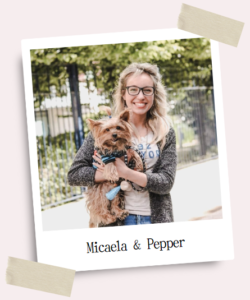Like all of Todd Solondz’s movies, Wiener-Dog is a black comedy with the comedy removed, leaving just the black: a tarry, sticky, dense residue of bleakness and callousness. It is a portmanteau film of sorts, an anthology of short stories linked by a single element: a dachshund – maybe the same dachshund in all episodes, or possibly not. Around a third of the way through, it becomes unclear if it is a single dog who has been passed from one set of characters to the next, and we have missed some of the connecting narrative links, or if it is a different dog.
Some people call theirs “Wiener-Dog”, which was also the nickname of Dawn Wiener, the heroine of Solondz’s 1995 film Welcome to the Dollhouse. One character doesn’t call his dachshund anything, but morosely looks at a bunch of sausages, ie wieners, being grilled in a cafe window. Others decide on the name “Doody” or “Cancer”. In a weird way, Wiener-Dog reminded me of Anthony Asquith’s 1964 portmanteau film The Yellow Rolls-Royce, which was written by Terence Rattigan and tells three tales about different people who come to own the same yellow Rolls-Royce. We see how that extravagant car brings to the surface each of its owners’ vanities, yearnings, vulnerabilities and fears.

Wiener-Dog does the same thing, but in far gloomier style. We see how the dachshund is a child substitute, or an adult substitute, or a love substitute. Or, in the case of the second story – which, sensationally, almost suggests that Solondz is feeling good about himself and the world – it is the means by which love might be achieved. Actual love, not a pathetic or tragicomic parody of love.
And it is a very lovable-looking dog, in its goofily inelegant way.
In one story, Julie Delpy and Tracy Letts play Dina and Danny, an uptight, unhappy couple whose young son Remi (Keaton Nigel Cooke) is recovering from cancer. This echoes with a later story. Remi gets the dog as a present to cheer him up. In the next story, Dawn (Greta Gerwig), a veterinarian’s assistant, hopes the dachshund is the means by which she might be able to melt the heart of Brandon (Kieran Culkin), whom she knew in grade school as a notorious bully.
Solondz playfully creates a bizarre “Intermission”, virtually a short story in itself: a montage of Wiener-Dog walking through various famous landscapes accompanied by a country and western song about the nomadic dachshund roaming around. Then Danny DeVito plays Dave Schmerz (German for “pain”), a pathetic has-been screenwriter teaching at a film school where the students despise him and his only friend is his dachshund. Finally, Ellen Burstyn plays Nana, an ageing, blind, embittered woman visited by her granddaughter Zoe, a would-be actor played by Zosia Mamet, and her outrageous conceptual artist boyfriend, Fantasy (Michael Shaw). Fantasy is destined to create a Hirstian sculpture of Nana’s dachshund, an artwork which is suffused with the same deadpan, unreadable irony as the movie itself. Nana is incidentally visited by a number of hallucinatory replicas of herself as a little girl. Perhaps the Wiener-Dogs are supposed to be understood in the same parallel-reality sense.
Of all these stories, the most obviously alienated and horrible is the first. The parents are almost outrageously insensitive. They explain to Remi that “house-breaking” Wiener-Dog will help him to behave like a human: that is, go to the bathroom outside. The mother (Delpy) has a particularly crass way of explaining to Remi why Wiener-Dog has to be spayed (Solondz creates a ghastly echo of this image in the next story) and she tells him a story about an adorable little dog of her own childhood which discloses the Islamophobia and xenophobia of her upbringing.
Greta Gerwig’s performance in the next story is very controlled and almost demure compared to the leading roles she’s had. It’s a relief to see her underplaying. The adults played by DeVito and Burstyn have faces which have long since set into masks of indifference and disappointment.
As for the canine star himself, each dachshund is conceivably a variation on a theme, like a differently tinted Warholian pop art panel. Except that the dachshund is exactly the same in each case: very cute, and with a mute dignity that rises above the bickering humans. I’m still not sure what to make of the film’s almost-final moments. It’s as if Solondz is angrily reacting against suspicions that he is going soft: suspicions that he himself has created. It is a movie with a hard core of disillusionment.
Via: The Guardian

